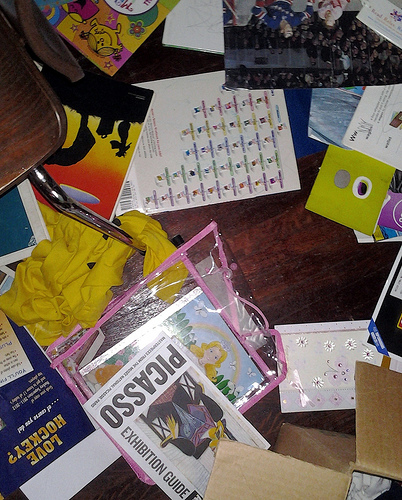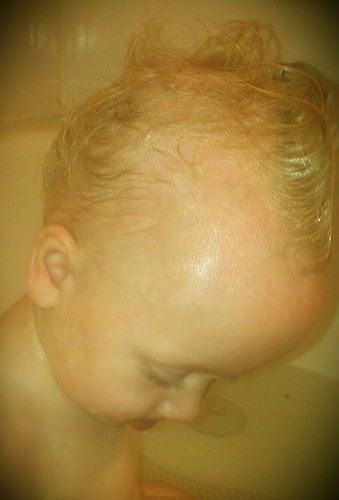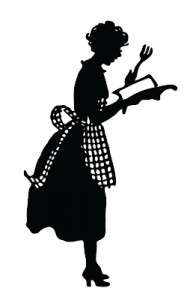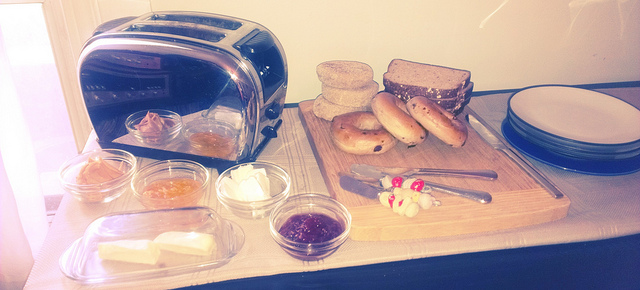 So, breastfeeding.
So, breastfeeding.
There is always breastfeeding versus formula feeding drama on the internet, but I mostly stay out of it. I stay out of it because I don’t know that there’s anything more to say. Who doesn’t know that breastfeeding is your best first choice for baby feeding? Adding more voices to the chorus simply adds to the breastfeeding pressure mothers feel. Mothers like Casey from Moosh in Indy who says, “Can you imagine someone who suffers from dry eye syndrome being accosted for putting eye drops in their eyes? “Those have chemicals in them! THEY ARE UNNATURAL! What, are you so selfish that you can’t bother to cry your own tears?”
And of course we don’t mean it that way! Of course, we are only trying to promote a culture of breastfeeding support and acceptance. But women, emotionally fragile brand new mothers, are made to feel like they have somehow failed. They feel that way and they shouldn’t have to. So I tend not to say much.
Anyway, many of the people who do speak out in favour of breastfeeding rights and support do such a great job. They have got it covered. (Holla Annie PhD in Parenting, KellyMom and Blacktating just off the top of my head.)
But. You had to know there was a but coming. But today I do want to say something.
We really do have such a long way to go. It’s so easy to assume, having lived and breathed parenting and breastfeeding literature for over six years now, that the basics are common knowledge. I assumed, at least, that in a top-rated, state of the art labour and delivery ward in downtown Toronto, the L&D nurses would encourage breastfeeding immediately following an uncomplicated vaginal delivery. I didn’t expect them to advise the mother “to just bond” with her instead, as if bonding was not something that happens at the breast as well.
Nor did I expect a nurse from that same hospital (*cough cough* Mt. Sinai *cough cough*) to deem a mother’s nipples unacceptable and declare “this isn’t going to work” within 14 hours of a baby’s birth. Formula was introduced right away, no instructions were given about continuing to try to put the baby to the breast with every feed and the normal breastfeeding assistance everyone else received was bypassed because she was no longer breastfeeding. Less than 24 hours after the birth!
I didn’t expect a nurse at that same hospital to turn a breast pump up to high and then walk out of the room when my own newborn son was receiving light therapy for jaundice. I still cringe at the nipple trauma from my first-ever experience with a breast pump. And then every other nurse I dealt with (some of whom were fantastic) gave me conflicting advice.
There are evidenced-based facts about what measures help to promote and encourage a healthy start to breastfeeding. THIS STUFF ISN’T A MYSTERY. Every expectant mother shouldn’t have to read the Jack Newman Guide to Breastfeeding in order to know what these basic measures are. (Although I do recommend it.) The nurses should have read it. Every labour and delivery nurse should be trained in basic breastfeeding support and nobody should have to wait more than 24 hours to see a lactation consultant if they need one.
But, you know what? Stuff happens. There are flat nipples and inverted nipples and tongue ties that are missed because family doctors are not lactation experts either. There are stubborn babies and sleepy babies and babies who have been traumatized with deep suctions. There are emergency c-sections and preemies and breast aversions and some moms really just don’t have enough milk.
Sometimes breastfeeding doesn’t go as planned. Sometimes you can do everything right and it still doesn’t work — at least not right away. This is invariably exhausting. Emotionally and physically and psychologically, it is draining to spend almost every waking moment worrying about how you are feeding your baby (and then feeling guilty if you take an afternoon off). All new moms need support; new mothers that are struggling need extra support instead of breastfeeding pressure.
A common error is to try to make the mom feel better by telling her not to worry. Things like, “Well, the important thing is the baby is getting your milk,” or, “All that matters is that you tried,” come from the right place, but they don’t help. For a mom that is dealing with round-the-clock newborn feedings and then having to pump in between feedings, that is not all that matters. Is there anybody who ever set out to feed her baby breast milk from a bottle or a tube? Is that ever the end goal? No, it’s not. So let’s stop pretending that it’s an adequate substitution for the mother. (A well-loved, well-fed baby is going to do just fine regardless.)
That goes for doctors, nurses and hospitals too, by the way. There seems to be a general push for mom to start pumping as soon as any feeding difficulty is detected and then, so long as she is producing milk and baby is feeding, nobody is following up. Baby’s getting breast milk, right? That’s all that matters.
Well, for me, breastfeeding is about more than just the milk. It’s about more than just the bonding and togetherness, too. It’s about never having to wash a bottle. It’s about not knowing about the different kinds of bottle nipples. It’s about knowing that as long as my baby is with me, it will have everything it needs. Breastfeeding is about never having to plan (too far) ahead. It’s about lazy mornings in bed. It’s instant comfort for bumps and bruises, a sleep aid and a pacifier. Breastfeeding makes me feel better and calms raging postpartum hormones.
It also makes my hair continue to fall out. But did I mention the lazy mornings in bed?!
So let’s keep our eye on the real goal, medical profession and rest of society.
But if it really doesn’t work? If breastfeeding is not happening, for whatever reason, can we just let a poor woman feed her baby formula from a bottle without guilt trips and breastfeeding pressure? I mean, if she wants to keep pumping, by all means. But if formula can give her more time, more rest, more sanity — if it can make her a happier mom, then why shouldn’t she switch?
I know if I were to have another baby (hypothetically, puh-lease!) and was confronted with a killer tongue tie or some other insurmountable latching issue, I would switch in a heartbeat.
Who’s with me?































